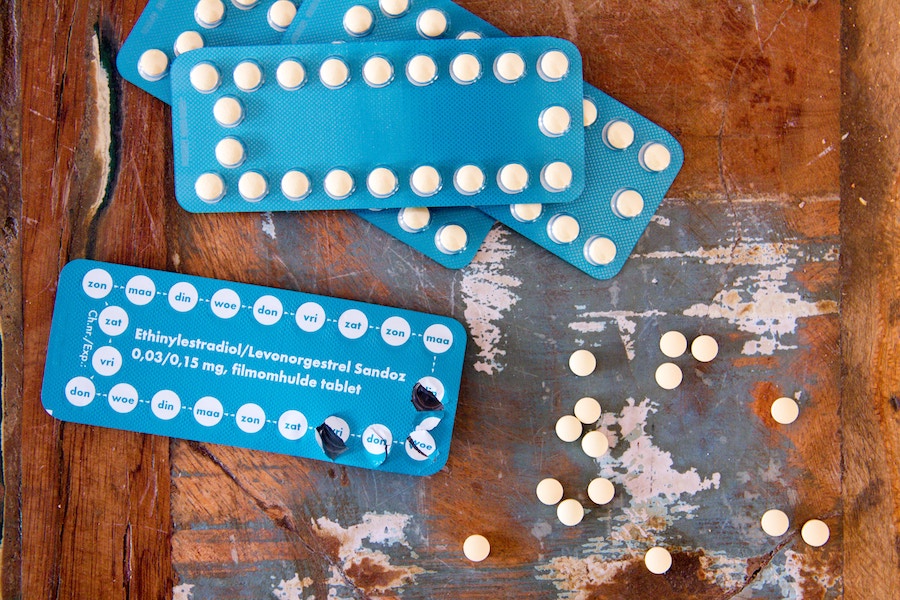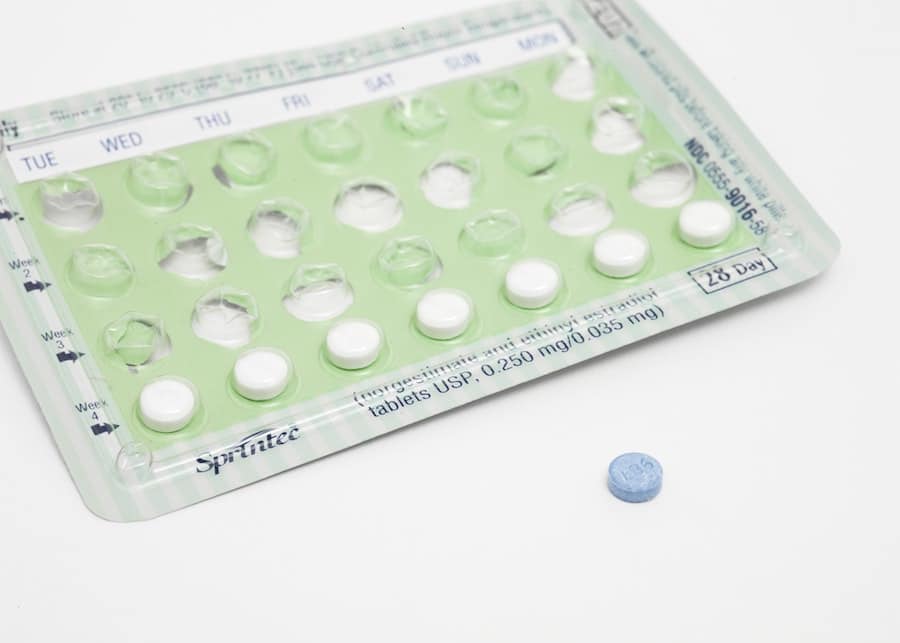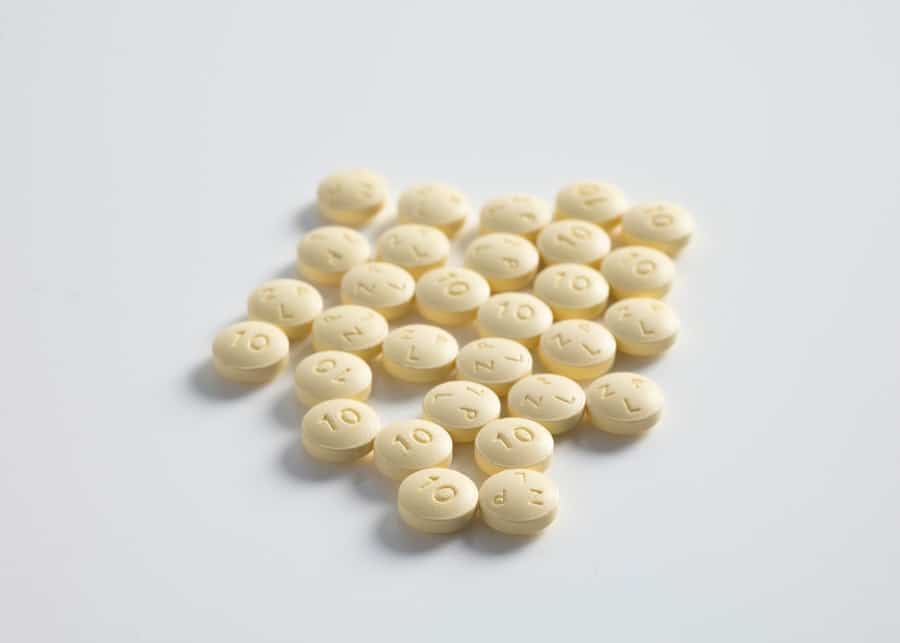We look into the research on the risks and effects of birth control infertility and if taking oral contraceptives causes permanent infertility.

For those following my infertility journey, you know that I am one of the 1 in 8 who struggle trying to conceive. I was originally diagnosed with polycystic ovary syndrome (PCOS) by a reproductive endocrinologist (who later would be the doctor to retrieve eggs, fertilize eggs, and implant eggs via IVF in what would soon become Baby E), and it was explained that it was this PCOS that caused my apparent infertility.
However, upon reflection and some digging, I started to question whether I had been misdiagnosed. I mean, I don’t really meet any of the criteria for PCOS other than the fact that I wasn’t ovulating, and I had slightly polycystic ovaries. Yes, I met the diagnostic criteria, but I didn’t exhibit any of the other symptoms typical in women with PCOS. I wasn’t gaining weight, my blood sugars and testosterone levels were normal, I wasn’t growing facial hair etc. My family doctor said he was SURE I didn’t have PCOS and that what I was actually experiencing with my infertility issues was something he called Post-Pill Amenorrhea. This is a phenomenon where women who have been on the birth control pill for a long time suddenly cannot get pregnant or ovulate even after they come off. It made somewhat sense considering I had been using hormones to artificially simulate something my body should be doing naturally for 14 whole years and all of a sudden I was hoping it would just figure it out. I started asking more and more questions.
I began to quiz my fellow IVF mamas and infertility warriors, and many of them told me that they too had been on the pill for many years, and when they came off, they just didn’t get a period.
So why do some women get pregnant as soon as they come off the birth control pill and other women struggle to ovulate? Is this birth control infertility? What is the real risk of birth control infertility? Let’s look at what the research says!
Post Pill Amenorrhea and Birth Control Infertility
Research suggests that using birth control over a long period of time may cause a delay in fertility. A systematic literature review looked at women who discontinued oral contraceptives (aka. the birth control pill) in order to get pregnant and found that women who had been on the pill had a delay in getting pregnant – for some it may have taken a year, for others even more. Because they didn’t really compare this with a proper control, it’s hard to know if this is a normal amount of time for couples who are trying to conceive, or if the pill played a role at the delay.
But let’s start by talking about the absence of ovulation and menstruation – amenorrhea. There are a number of common reasons why some women experience amenorrhea and infertility, some of which include polycystic ovary syndrome (PCOS), hypothalamic amenorrhea, ovarian failure and hyperprolactinemia. Interestingly, a lot of these fertility issues are treated with… you guessed… the pill!
With PCOS, the pill is used to suppress the androgen hormone (the hormone that gives individuals male characterizes) and to stimulate or “regulate” a menstrual cycle (even though a period on the pill is not really a true menstrual cycle). Many women with PCOS otherwise do not have a regular cycle, and may ovulate sporadically or not really at all. So when a woman with PCOS comes off the pill, and doesn’t get their period, it’s not hard to see that as an effect of birth control. But is this really the case?
What is really to blame for the post pill amenorrhea? The primary cause of infertility (the PCOS or other hormonal disorders), or is birth control infertility to blame?
The Birth Control Pill and Uterine Lining

Let’s now talk about the role of the pill and pregnancy. Obviously, the birth control pill’s job is to prevent unwanted pregnancy. One of the ways it does this is by thinning out the uterine lining. If you’ve gone through fertility treatments like me, you know WAY too much about a uterine lining, but let’s go over a little anatomy 101 to catch you up.
A thick sticky uterine lining is where conception happens – not where it begins, but it is a crucial step. In a normal menstrual cycle, your uterine lining thickens as it prepares to “catch” and hold onto the fertilized egg. If the egg doesn’t successfully “implant”, the woman’s body sheds the egg and this causes a menstrual period. So bottom line, the thickness of your uterine lining is integral to a successful full term pregnancy.
When I was going through IVF, I was told that most reproductive endocrinologists won’t implant an embryo unless the woman’s uterine lining was 8 mm or thicker. Some women in my Facebook support groups said their doctors wanted 12-15 mm linings. My lining, no matter how many drugs and cocktails of hormones I was given, would not exceed 4 mm in thickness. It was devastating. I knew the research. I knew that the literature supports the idea that thicker linings mean better chances of conception. One study found that a uterine lining of 6mm or higher was associated with greater success rates in IVF. Another study that looked at uterine lining thickness and fertility found that a uterine lining thickness of 7mm or more predicted successful pregnancy outcomes. A study that looked at uterine thickness for women in general using IVF treatment to conceive, found that pregnancy rates were significantly lower in people with thin uterine lining, which is defined as less than 8mm. The odds were very much stacked against me and I was playing a very expensive (and emotional) game of Russian Roulette, but I chose to take a chance. It worked. But I know I’m one of the lucky ones.
My story aside, let’s get back to business. We know that the birth control pill, while being used, may thin the uterine lining, but are those effects long lasting? While we don’t have a ton of great research, there are some emerging answers. One study found that long-term use of the pill causes the uterine lining to become thin. This study looked at 137 patients with a history of using oral contraceptives, and divided these patients into two groups – one group was of people who had a uterine lining of less than 7mm, and the other group who had women who had a uterine lining of 7mm or thicker. The study defined 10 years use of oral contraceptives to be long-term (FYI, I was on for 14!!). The researchers found that there was a higher percent of women who had been using oral contraceptives long-term in the group of women who had a uterine lining of less than 7mm than in the group of women with a uterine lining of 7mm or more. Could this be what happened to me? What exactly is going on that may prevent a thick lining?
It’s possible to comes down to the woman’s hormone ratio. Women with a uterine lining of less than 7mm tend to present with a lower ratio of estrogen to progesterone than women with linings greater than 7 mm. This is why typically women who are struggling with a thin uterine lining are given estrogen hormones (like Estrace) to boost that ratio. A study analyzing the effectiveness of estrogen treatment in patients with thin uterine lining found that it was generally successful in increasing the thickness of the lining. This doesn’t work for everyone (oh HI THERE), it also turns your underwear blue because some idiot (likely male) drug manufacturer decided that a vaginal suppository should be smurf blue. But I digress, it is an option to discuss with your doctor or reproductive endocrinologist if you suspect a thin uterine lining is interfering with your conception success.
While we have little bits of information, we still don’t know for sure if the pill causes this hormonal imbalance, or how many months or years of birth control pill use has this negative outcome on uterine lining. It’s very likely to be an individual case.
Vitamins and Minerals of Consideration on the Birth Control Pill

Let’s consider a different angle that’s maybe a little more in our control – nutrition. Does taking the pill impact our nutrition status in a way that might be inadvertently affecting our fertility causing birth control infertility? It’s a bit of a leap, but totally possible, too. One study looked at healthy women on the pill who were not on any other medications, and found that long-term use of the pill lowed their levels of Vitamin B6, B12, and folate levels. Vitamin B12 and Folate, specifically are two really important fertility nutrients, so here’s an interesting piece of the puzzle to explore.
Research has identified a link between low folic acid and Vitamin B12 levels and female infertility. So could it be possible that the pill is causing a nutritional deficiency that is linked with infertility and post pill amenorrhea? Do the type of people who are taking the pill also just happen to be nutritionally deficient in key nutrients? Or is there another confounding variable all together? A study found that nutrition is one important factor post pill amenorrhea to improve fertility in women because malnutrition is also associated with amenorrhea. So ladies, let’s eat up!
Tips to Add Vitamin B12 and Folate into Your Fertility Diet

While we don’t have definitive answers, let’s look at some ways we can add these important fertility nutrients to our diets that may be depleted by the pill.
Folate is important for increasing the fertility of women but also to decrease the risk of birth defects like spina bifida. It’s often found in a variety of foods such as beans, lentils, spinach, asparagus, broccoli, enriched grain products, peanut butter and sunflower seeds.
Vitamin B12 is important for fertility in women but also helps us make healthy cells and keep our nerves working properly. It can be found in foods such as organ meats, salmon, tuna, cottage cheese and in fortified products such as in fortified almond milk. For vegans, Vitamin B12 can be consumed through supplements or fortified plant-based products.
Bottom Line on the Risks and Effects of Birth Control Infertility

There is a lot of unanswered questions here, and to be honest, it might take a LONG TIME before we have answers. The medical community is not exactly amazing at staying on top of female health problems, and not to get all conspiracy theorist here, but I do think they tend to swipe a lot of these side effects under the rug when prescribing or developing female birth control options.
What we do know is that post pill amenorrhea may play a role in future fertility, and that this may be related to either the effect on the uterine lining, nutrition status, or a combination of these things.
This is not a reason to not use birth control, but like all things, it’s important to be as informed as possible when making decisions that affect your health. Especially when they may have long term repercussions.
Other Blog Posts You May Like
- SEED CYCLING FOR FERTILITY | DOES IT ACTUALLY WORK?
- DOES ALCOHOL & CAFFEINE AFFECT FERTILITY OR CAUSE MISCARRIAGE?
- FERTILITY SUPPLEMENTS & FOODS FOR GETTING PREGNANT
For now I would love to hear from you: Do you think birth control infertility is real? Did you have a hard time getting pregnant after coming off the pill? Have you struggled with thin uterine lining after being on the birth control pill? Leave me a comment, let’s talk!
Research by Intern Preveena Manisekaren

Abbey Sharp is a Registered Dietitian (RD), regulated by the Ontario College of Dietitians. She is a mom, YouTuber, Blogger, award winning cookbook author, media coach specializing in food and nutrition influencers, and a frequent contributor to national publications like Healthline and on national broadcast TV shows.





Kathryn says
Currently trying to get my period back after 12 years on the pill. It’s been 6-7 months without. Doctor put me on two cycles of progesterone both of which I had withdrawal bleeding. Now trying to decide if we are going to try taking clomid and try to conceive. Not sure if this is the best next step or what? Not to mention the pressures of having a ticking biological clock. Thanks for sharing your story!
Abbey Sharp says
Ask your dr if letrozole is an option before clomid. Letrozole wasn’t enough to force me to ovulate but it might be enough fir you and you can avoid the high risk of multiples w clomid.
Lacey says
I was on the BCP for about 20 years. I started it because my period started presenting as 10 days of spotting in a month and I was about 90lbs and super fit and active at the time (age 16). The pill gave me a 2-3 day period that seemed more normal. Then in my early 20’s diagnosed with a non specific autoimmune disease that affected my eyes and put in methotrexate. A nasty drug that causes birth defects so staying in the pill made sense.
At 29 diagnosed with crohn’s disease with SI joint arthritis as well. So quickly ended up on biologic drugs. I have had 2 iron infusions at 30 and 35. And finally felt well enough to start trying at 36. Off the pill and no period. Dr said I was not ovulating and my reserves looked low. Tried letrozole and had no success then ovulated but found out my partner might also have an issue.
IVF with OHSS so no transfer in January. Then 3 or 4 cancelled cycles with lining never greater then 3.9mm.
Did ivf protocol again to stimulate lining and only reached 4mm with failed transfer. Another Estrogen cycle reached 4.9mm with failed transfer.
About to start my last attempt before moving to surrogacy.
No one seems to have answers I have tried plaquenil, a uterine scrape, and now pentoxifylline is being added.
Help!
Maryam says
I was on the pill for almost 10 years and stopped when my husband and I wanted to conceive. It took one year before I got pregnant and in that time I only got my period twice. I went to 3 different doctors and none of them thought it was a major issue or anything to worry about-so frustrating! I am definitely worried about being able to get pregnant again…
Abbey Sharp says
I can totally understand your frustration! Im sorry you’ve had to go through this, I know its not easy. Hang in there and wishing you all the luck with baby #2!
Sophia says
I went on the pill at around 15 as my periods were very heavy and two years later I went off the pill and to this day I still have not gotten my period back. Should I take supplements or eat certain foods? Their is so much misleading information online these days!!
Abbey Sharp says
Sorry to hear! You may be able to find some answers in a blog post I did on what to do when you’ve lost your period -> https://www.abbeyskitchen.com/lost-your-period/
Whitney says
I took birth control for about 12 years. Around year 10 I gained about 20 lbs for no reason. I couldn’t figure out why I gained and saw a few physicians with no answers. Finally had my hormones checked and everything was out of whack, like my body had gotten lazy. After discontinuing BC the weight came off pretty quick. Around 6 months later my husband and I started trying to conceive and it worked our first try. No issues with our second baby either. I hope you get the answers you’re looking for and wish you luck in your fertility journey.
Abbey Sharp says
thank you Whitney. My new doctor actually told me that yes, some women do get suppressed estrogen from the pill. so that sounds like what happened to me.
Joanna Fiskar says
I believe taking BCPs for 8 years caused my infertility. Pre-BCPs, I had quite heavy periods for 3 days. After a few years on BCP, my periods became lighter until eventually they were a half-day affair that was mostly black stuff.
I came off the BCPs and tried for 3 years to get pregnant. Not a hint. Periods were the same as under the BCP time.
Infertility investigations gave no answer but the doctors never asked about my periods.
It was only during IVF that I realised I had thin lining (4mm) (and that it mattered-we learn so much in IVF treatment!).
Luckily, I got pregnant on the second fresh IVF attempt. Somehow my lining got up to 8mm during the IVF treatment.
Also, when I stopped breast-feeding, my periods returned to how they used to be, pre-BCP. A hormonal reset? That is when I suspected a link between BCP and infertility for me.
I didn’t take any chances for baby#2 though, and was extremely fortunate for my third fresh IVF to succeed (at age 41!). And my lining got up to 12mm (doctor was shocked, she asked the nurse to double check my previous reading).
I really regret taking BCPs as I only did it for convenience…you know when you will have your periods under the BCP. And most websites tell you that it has no effect on future fertility. Maybe for most women, but maybe not for all women.
Madalina says
Hi!
I took the pill for 5 years (2010-2014).
From 2014 until the present I didn’t get pregnant at all.
Unexplained infertility.
Thin endometrium. 5,5 mm.
Doesn’t grow with any treatment.
IVF in 2019 with one negative ET on 6 mm endometrium.
I still have 2 frozen blastocysts.
Jordan says
want more information on blood clots and future fertility
thank you
Abbey Sharp says
noted 🙂 thanks for the feedback
Suzanne says
Thank you for writing about this. I had been on the birth control pill for 15 years before stopping to try and conceive. As far as I can remember I had regular periods with a decent amount of bleeding before going on the pill.
After stopping the pill nothing happened, no period at all for 8 months and even provera didn’t bring on a bleed. I was diagnosed with pco, I like you do not have increased testosterone, no extra hair growth and am not overweight. I was started on letrozole (femara) to kick start ovulation, which it did, but unfortunately my uterus lining never exceeded 4mm and my periods lasted for 2 days max. So after 8 months on these drugs I am waiting to start ivf in November and hoping they can find a way to thicken my lining up.
I have been dismissed every time I have suggested that prolonged time on birth control is the reason for my uterus lining not thickening but I honestly think that it is the route cause of the problem. I’m really hoping more research is done in this area as women are taking these supposedly safe pills for longer and longer until ready to start a family.
Abbey Sharp says
Totally agree. Thanks so much for sharing your experience with us
Angela Roberts says
I was in the same boat as you … technically still am. During letrozole cycles we used estrogen for lining thickness around day 9-10 once the follicles were big enough.
I did IVF in October, even with all the magic meds nothing thickened my lining beyond 6.7 mm. I had one cancelled FET for lining shrinking, and 2 failed transfers, one of which was a chemical pregnancy. My last cycle I primed (subq shots) with HCG for 7 days prior to starting progesterone. This cycle so far has worked out, fingers crossed. The lining problem is so depressing because you have done all the IVF work, but then home just isn’t hospitable.
How is your journey going? You started back in November?
Hope says
Hi Angela and Suzanne, thank you both for posting here – I also struggle with thin lining after years on the pill and it’s so hard to find any information on this or other women with the same problem. So far we’ve tried low dose menopur with timed intercourse, which did help to thicken my lining but no success. We’re hoping to start IVF soon. How are you both getting on?
Thank you Abbey for raising this topic, it’s definitely not talked about enough, and sadly almost always dismissed by doctors.
Kate says
Hey ladies!
On the same boat as you all. I was on birth control for 15 years. Basically no period mostly brown and spotting. Prior to birth control I had a perfect period. Same day, time every month! I’m going on month six of really no period and my doctor wants to start me on letrozole. I’m debating if I should do the holistic route before jumping into more meds. At this point I keep preaching to other people to really research what they are putting in their bodies. If I would have known this is what is was doing to me I would have stopped. No doctor will admitted it to me either that birth control is the reason I am even struggling. However, I looked up my birth control online and found that it says it one of the main things it did was thin the uterine lining.
Sending thoughts and baby dust to you both!
Sarah says
I too believe that the pill caused my infertility , I was on the pill ( at least 4 different brands ) from the age of around 16/17 until I was 30 , until I was 25 it was not for contraceptive reasons but because I had painful periods and acne.
one brand I had for at least 3 years was took off the market and 2 other brands caused very bad mood swings. so hence 4 different brands.
I also later on when I was around 27 tried to have the implant in my arm, which looked like a little white stick , but I had it removed after 3 months because it caused constant spotting for 3 months straight.
my and my partner decided when I turn 30 we were ready to start a family, I came off the pill and my periods were 90 % regular but very light and only lasted 3/4 day at most , after a year of trying to conceive I went to my doctor , she said don’t worry if you haven’t conceived in a year we say go away for another year and try again , total the wrong advice to give me considering my age but I didn’t know any better at the time.
after 4 years of trying every month and constant crying and heartache I had lots of tests done to see what was wrong , the doctor told me I had low overian reserves and that I was ovulating like a 42 year old women , he put me on clomid for 6 months but still no joy , I was then put forward for ivf which worked 1st time round and im going to have my baby in few weeks time 🙂
I am so angry with myself for not even thinking for all those years what i was doing to my body. i was so stupid for not even questioning the doctors , just take these magic pills and all will be better , I now tell anybody that will listen what happened to me and please don’t be on the pill.
Abbey Sharp says
Thanks for sharing Sarah. What a long and emotional journey. So happy to hear IVF worked for you.
LJG says
Before I took the pill my period was regular and a healthy bright red. On the pill, it was dark and light and didn’t look healthy. I was on it for over 6 years.
I came off the pill over one year before I started trying to conceive. My period still contained lots of clots and was dark and unhealthy looking.
I went to fertility acupuncture after 2 years of trying to conceive and my period started looking brighter and brighter. I did 3 IUIs that were unsuccessful. We were just about ready to do IVF when I finally conceived after 4 years of trying but it ended up in a miscarriage.
Got pregnant again 3 months later and so far it’s going well. All in all I was off the pill for 5.5 years and trying to conceive for 4.5 years. I definitely blame the pill for my difficulties as in almost every other way I led a healthy lifestyle.
Abbey Sharp says
Ugh im sorry you went through this. I also blame it for my infertility.
Sarah says
Thanks for writing this, Abbey. I’ve never heard of post-pill amenorrhea, but I definitely blame OCP for my struggle with infertility. I was on OCP for 12 years and, while I was on it, my periods were regular (bang on 28 days every month), but MAN were they awful!…heavy, crampy, sometimes passing small blood clots, and lasted 7 days. When I complained to my doc, she said, “if it’s working for you (from a contraception perspective), don’t fix what isn’t broken”. When I finally stopped the pill, I still got periods, but very irregularly – anywhere from 21-29 days, no cramps, very light, and lasted max. 3-4 days (completely the opposite from what many people experience when stopping the pill). In the early days of trying to conceive, I was put on aspirin (which supposedly prevents blood clots from forming around a pregnancy and killing it – even though I wasn’t passing blood clots anymore after stopping the pill). That didn’t work, but it did make me bruise like a peach for 6 months. I had totally forgotten about having tried Estrace, too, until you mentioned it (and yeah…blue??? Thanks for that! Eye roll…) Anyway, to make this already long story shorter, after 2 years of trying with multiple losses, I was fortunate enough to be successful with IVF. But I struggled with a thin uterine lining too (mine rarely got above 6mm and never above 8). We were lucky enough to end up with 2 viable eggs from that IVF cycle, so we implanted one and froze one. The implanted “fresh” embryo resulted in my beautiful daughter. When we returned to implant the frozen embryo 2 years later (same issues with thin uterine lining), it didn’t work. We still managed to conceive our son after 2 losses and reproductive assistance (but IVF wasn’t needed this time). And now that we have 2 beautiful kids, we’re done. I can’t take the emotional roller coaster of hope and loss anymore and we’ve been exceptionally lucky twice….I’m not about to push my luck again. But 100%, I blame my struggle on that damn pill.
Abbey Sharp says
Sounds like a very long journey and congrats on your family. Thank you so much for sharing your journey with us.
Alicia says
I was on the pill for about 20 years and it took me 6 months to get pregnant. My ob said that being on birth control helped me not to develop more ovarian cysts. I had to have several removed in my early twenties. I started the pill around 16 years of age and got off to start trying at 36 at which time I immediately started prenantals. I feel very lucky after hearing so many women struggle with infertility. I was very nervous after years of pressure and pessimistic comments from my mother about my eggs “turning to dust”. I even went to a reproductive endocrinologist at almost the 6 month mark and learned I only had one ‘normal’ ovary, but somehow got pregnant a couple of weeks later.
Abbey Sharp says
Thank you so much for sharing your story with us Alicia
Calesse says
Hi Abbey, love your blog and YouTube channel! Thanks for the great well researched content! I was on the pill for 10 years beginning in my teens. I’m currently TTC (4 months since discontinuing the pill). I got my period back right away and have confirmed ovulation for the past few months. I hope those are good signs but I’m still worried such a long time on the pill has screwed up my system…
Abbey Sharp says
Amazing!! Sounds like you’re on your way!
Annanak says
I am so glad more and more women are acknowledging the issue of BC. About 10 years ago, I took a pill for a year and had the worst symptoms ever. Once I came off, I had to drop some weight which turned into some variation of eating disorder. I have not had my period since, and all hormonal labs say I am ok. However, I don’t think I ovulate and I have no sex drive. My husband and I have not tried to conceive, but I am afraid to think what it is yet to come with complications.
Abbey Sharp says
Hi there, thanks so much for sharing
Jane says
Hi, I’ve been off the pill for 2 years having been using it for 20 years. My period is 2 days long instead of 7 it used to be. Thing is what can be done to protect future generations of women? We’ve been duped and they are being super too.
dixya @food, pleasure, and health says
thank you for sharing these. i am not very familiar with the topic so I found them to be very informational and beneficial.
Abbey Sharp says
So glad!
Deborah Brooks says
I just saw a news story on this topic on GMA today and they said that BCP’s do not effect future fertility. Interesting subject for sure!
Abbey Sharp says
Very interesting! I’ll have to check this out!
Kelly says
Interesting topic. I took birth control for a long time and struggled immensely after I went off. I think it masks a lot of things that may not be working well in your body. I know it did for me and I’m happy to no longer be taking it.
Abbey Sharp says
Very good point!